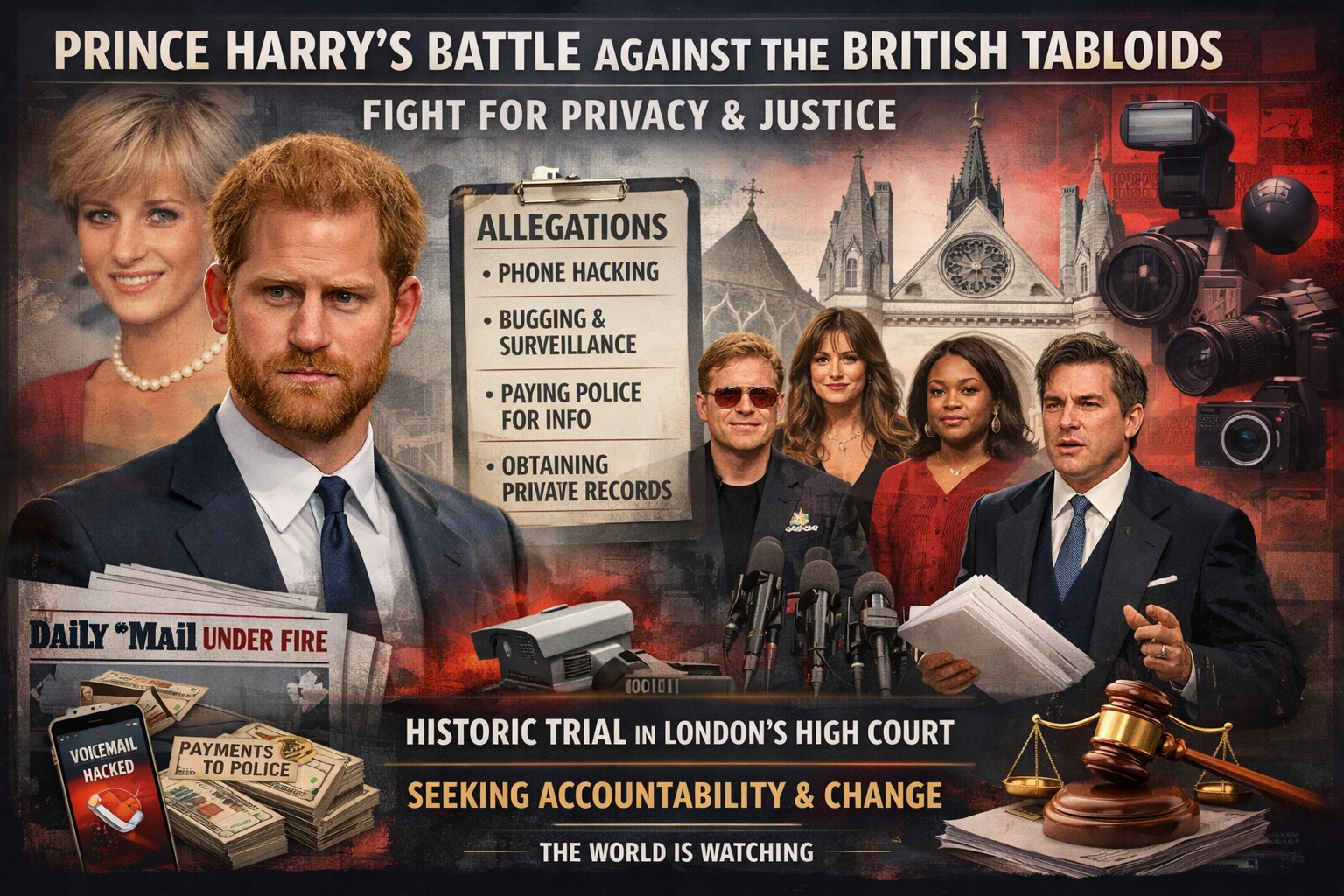See jobs we've picked just for you


India Warns Poland Over Pakistan Support, Raises Concerns on Ukraine War Targeting
By Sirjana –searchtalents.co, Mohali, Punjab, IndiaIndia Warns Poland Over Pakistan Support, Raises Concerns on Ukraine War TargetingNew Delhi:India on Monday strongly pushed back against what it described as “selective and unfair targeting” over its Russia trade ties amid the Ukraine war, while firmly cautioning Poland against extending any form of support — direct or indirect — to Pakistan on issues related to cross-border terrorism.External Affairs Minister S. Jaishankar conveyed New Delhi’s concerns during talks with Polish Deputy Prime Minister and Foreign Minister Radoslaw Sikorski in New Delhi, as the two sides reviewed the expanding India-Poland Strategic Partnership and discussed key global and regional developments.Strategic Partnership Amid Global TurbulenceWelcoming the Polish delegation, Jaishankar noted that the meeting was taking place at a time of “considerable churn” in global affairs, making dialogue between partners even more critical.India and Poland elevated their relationship to a Strategic Partnership during Prime Minister Narendra Modi’s visit to Warsaw in August 2024. The two countries are now working under an Action Plan 2024-28, focusing on trade, investment, defence cooperation, clean energy, security collaboration, and digital innovation.Jaishankar said both sides would continue to explore deeper economic and technological engagement.The Ukraine War and India’s StandHowever, geopolitics quickly dominated the discussion.Referring to the Ukraine conflict, Jaishankar said he had “candidly” shared India’s position with Sikorski on several occasions in global forums and reiterated it once again in New Delhi.“The selective targeting of India is both unfair and unjustified,” Jaishankar said.India has repeatedly expressed discomfort with what it views as pressure tactics aimed at influencing its independent foreign policy choices. New Delhi has maintained that dialogue and diplomacy are the only viable solutions to the Ukraine conflict and has resisted bloc-based alignment.Strong Message on Pakistan and TerrorismThe second major issue raised was cross-border terrorism.Jaishankar reminded Sikorski that Poland was well aware of the challenges India faces from terrorism emanating from across its borders.“Poland should display zero tolerance for terrorism and not help fuel terrorist infrastructure in our neighbourhood,” Jaishankar said — a remark widely seen as a reference to Pakistan.The statement also appeared linked to Poland’s comments on Kashmir during a visit to Islamabad in October 2025.India has intensified diplomatic efforts across Europe to ensure consistent positions against terrorism financing and extremist safe havens.Poland’s ResponseMinister Sikorski broadly echoed India’s concerns.He agreed that selective tariff targeting was unfair and warned that such practices could destabilise global trade. He also cited recent incidents in Poland, including arson attacks and attempted sabotage of railway infrastructure, calling them examples of trans-border terrorism.Both leaders agreed on the need for stronger global cooperation against terrorism.Growing Economic TiesDespite the diplomatic firmness, the meeting reflected strong bilateral momentum:Bilateral trade: ~USD 7 billionIndian investment in Poland: Over USD 3 billionPoland is among India’s largest Central European partnersBoth sides expressed confidence that cooperation would continue to expand across sectors.Why This MattersIndia’s message to Poland reflects a broader foreign-policy doctrine:Strategic autonomy over bloc politicsZero tolerance for terrorismFairness in global trade practicesPartnership based on mutual respectNew Delhi made it clear that while it values its European partnerships, it will firmly defend its red lines.Leadership Lessons for CandidatesFor professionals and future leaders, this diplomatic exchange offers important lessons:1. Speak With ClarityStrong leaders communicate concerns without hesitation.2. Protect Core ValuesIndia’s stance shows that principles should not be compromised for convenience.3. Balance Firmness With DiplomacyLeadership is not aggression — it is composed conviction.4. Strategic PatienceLong-term partnerships grow when leaders address issues directly and respectfully.5. Integrity Builds TrustTrust in leadership comes from consistency between words and actions.What Candidates Should LearnIn careers, just like diplomacy:Silence weakens influence.Clarity strengthens leadership.Professionals who can defend values while maintaining relationships become trusted leaders.The Road AheadAs India and Poland continue strengthening their strategic partnership, New Delhi’s firm articulation of its concerns signals that global cooperation must rest on fairness, sovereignty, and ethical consistency.For India, the message is clear: partnership is welcome — pressure is not.SearchTalents InsightAt SearchTalents.co, we believe modern leadership is built on confidence, ethics, and responsibility — qualities that define both strong professionals and respected nations.#IndiaPoland #UkraineWar #SelectiveTargeting #IndianDiplomacy #Jaishankar #ForeignPolicyIndia #RussiaUkraine #Terrorism #ZeroTolerance #Pakistan #GlobalPolitics #StrategicPartnership #IndiaEU #CrossBorderTerrorism #SearchTalents #SearchTalentsInsights #LeadershipLessons #WorldNews

Why Prince Harry Is Suing the Daily Mail: Inside His Legal Battle With British Media
By Sirjana –searchtalents.co, Mohali, Punjab, India Prince Harry has launched one of the most significant legal battles in modern British media history, taking on Associated Newspapers Limited (ANL), the publisher of the Daily Mail, Mail on Sunday, and MailOnline, over alleged unlawful information-gathering practices.The Duke of Sussex, along with six other high-profile figures, claims the media group carried out widespread privacy violations including phone hacking, bugging homes and vehicles, paying police for confidential information, and using deception to obtain medical and personal records.The case, now underway in London’s High Court, could redefine press accountability in the United Kingdom.A Personal Battle Rooted in HistoryPrince Harry’s confrontation with the media is deeply personal. Since the death of his mother, Princess Diana, in 1997 — which he has repeatedly linked to aggressive paparazzi behaviour — Harry has accused British tabloids of operating without ethical limits.He and his wife Meghan Markle have also stated that relentless media intrusion was a key reason they stepped away from royal duties and relocated to California in 2020.Now, at 41, Harry says he is determined to ensure that no one else suffers the same violations of privacy.What Is the Case About?The claimants accuse Associated Newspapers of systematic illegal conduct between 1993 and 2011, with some incidents allegedly continuing until 2018.Key Allegations Include:Hiring private investigators to illegally obtain personal informationPhone hacking and voicemail interceptionBugging homes, cars, and private spacesPaying police officers for confidential recordsObtaining medical and financial information through deceptionPlanting listening devices in vehicles and propertiesThe claimants describe the actions as “abhorrent criminal activity” and “gross breaches of privacy.”Their legal team says they have uncovered highly distressing evidence supporting the claims.Who Is Representing the Claimants?The group is represented by David Sherborne, a prominent lawyer known for handling major celebrity cases involving privacy and defamation. He has previously represented figures such as Johnny Depp and Coleen Rooney.Sherborne says the case reveals a pattern of unlawful conduct that goes far beyond isolated incidents.Associated Newspapers’ ResponseAssociated Newspapers has strongly denied all allegations.The company describes the claims as “preposterous smears” and insists its journalism was based on legitimate sources. Its lawyers argue that many stories were published decades ago and were never legally challenged at the time.At a preliminary hearing, ANL’s legal team said they would challenge the credibility of witnesses, claiming some “are not telling the truth.”A Trial With Historic ImpactThe trial is expected to last nine weeks.Prince Harry arrived in London from the United States ahead of proceedings and is scheduled to testify personally. A source close to him said he is “confident and ready” for the case.Other claimants include:Sir Elton JohnDavid FurnishLiz HurleySadie FrostBaroness Doreen LawrenceSir Simon HughesThis marks Harry’s third major legal battle with British tabloids. He has already won a case against Mirror Group Newspapers and settled another against News Group Newspapers.Why This Case Matters Beyond RoyaltyThis lawsuit is not just about Prince Harry.It raises urgent questions about:Media ethicsPrivacy rightsPower imbalance between press and individualsAccountability in journalismIf successful, the case could reshape how British tabloids operate and how personal information is protected under law.Leadership Lessons for Job Seekers and ProfessionalsFor candidates and professionals, Prince Harry’s case offers important leadership lessons:1. Stand for PrinciplesTrue leadership means protecting values even when facing powerful institutions.2. Courage Under PressureHarry’s willingness to testify personally shows accountability and confidence.3. Long-Term VisionLeaders fight not just for personal justice, but for systemic change.4. Emotional IntelligenceAcknowledging trauma while acting rationally defines mature leadership.5. ResilienceDespite years of criticism, Harry continues his pursuit of reform.What Candidates Can LearnIn careers and workplaces, professionals often face unfair treatment, power imbalance, or unethical behaviour. Leadership is not only about authority — it is about integrity, voice, and responsibility.Prince Harry’s case reminds candidates that:“Silence protects systems. Courage changes them.”The Road AheadAs the High Court trial continues, the world watches closely. The outcome may influence future media laws, privacy rights, and journalistic standards across the UK and beyond.For Prince Harry, the battle is not just legal — it is deeply human.SearchTalents InsightAt SearchTalents.co, we believe leadership begins with courage, ethics, and accountability — values that define strong professionals and trusted employers.#PrinceHarry #DailyMail #PrinceHarryLawsuit #DailyMailCase #UKNews #RoyalNews #BritishMedia #MediaEthics #PrivacyRights #PhoneHacking #JournalismAccountability #HighCourtUK #PressFreedom #LeadershipLessons #EthicalLeadership #StandForJustice #SearchTalents #SearchTalentsInsights #WorkforceLeadership #ProfessionalGrowth

Global Peace Initiative Invitations: What Trump’s ‘Board of Peace’ Reveals About Leadership, Strategy, and Workforce Opportunity
By Sirjana –searchtalents.co, Mohali, Punjab, India The White House has revealed the structure and early members of US President Donald Trump’s proposed “Board of Peace” for Gaza — a multi-layered international framework designed to guide governance, reconstruction, and stability in the war-affected territory.According to the White House, the initiative will operate through three key bodies:The Board of Peace, chaired by President Trump A Palestinian Technocrats Committee to manage governance on the ground An Executive Board, focused on advisory support and service deliveryTogether, these groups aim to rebuild Gaza’s institutions, restore daily life, and attract international investment and reconstruction funding.Who Is Leading the InitiativeThe Board of Peace brings together political, financial, diplomatic, and humanitarian leaders, including:Donald Trump (Chair) Marco Rubio, US Secretary of State Steve Witkoff, Special Negotiator Jared Kushner Tony Blair, Former UK Prime Minister Marc Rowan, US financier Ajay Banga, World Bank President Senior US national security officialsThe Gaza Executive Board includes UN officials, Middle East diplomats, intelligence leaders, and humanitarian coordinators — reflecting the complexity of post-war governance.Several world leaders have also confirmed receiving invitations, including the leaders of India, Brazil, Canada, Italy, Turkey, Pakistan, Jordan, Egypt, Hungary, Argentina and others.Why This Matters Beyond PoliticsWhile this is a geopolitical development, its deeper relevance extends into leadership, governance, and workforce strategy.This initiative highlights a reality every organisation faces:Large-scale challenges require layered leadership, shared responsibility, and clear governance structures.Just as Gaza’s reconstruction needs political leadership, technical expertise, and operational coordination — organisations too must balance vision, execution, and people management.Leadership Lessons for EmployersFor employers and business leaders, the Board of Peace structure offers powerful insights:🔹 Leadership Is Not Solo AuthorityEven at the highest level, leadership is distributed across committees, experts, and advisory boards.🔹 Governance Requires StructureClear roles prevent chaos. Without structure, even strong intentions fail.🔹 Credibility Comes from CapabilityTechnocrats are appointed not for popularity, but for competence — a lesson for corporate hiring.🔹 Collaboration Builds StabilityCross-border and cross-discipline leadership creates long-term solutions.What Job Seekers Can LearnFor professionals and young leaders, this initiative reflects how modern leadership works:✨ Leadership today is about coordination, not command.✨ Expertise matters more than titles.✨ Global thinking creates career advantage.✨ Adaptability opens leadership opportunities.Future leaders are not defined by authority — but by problem-solving ability.Why Workforce Strategy Matters in Global DecisionsRebuilding Gaza will require engineers, healthcare workers, educators, administrators, economists, planners, and humanitarian professionals. This reminds us that peace is not only political — it is operational and workforce-driven.In every crisis:Leaders design strategy Professionals implement reality Workers rebuild societyNo leadership plan succeeds without human talent.ConclusionTrump’s Gaza Board of Peace is not just a political initiative — it is a leadership experiment on a global scale. Its success or failure will depend not on power, but on coordination, trust, accountability, and people-centered governance.For employers, job seekers, and professionals, the message is clear:Leadership is not about who sits at the top — it is about how effectively people work together to rebuild the future. #GazaBoardOfPeace #TrumpInitiative #GlobalLeadership #LeadershipLessons #WorkforceStrategy #EmployerInsights #JobSeekers #CareerGrowth #GovernanceMatters #FutureLeaders #GlobalCooperation #PeaceAndLeadership #SearchTalentsInsights #ProfessionalDevelopment #HRLeadership #WorldAffairs #TalentStrategy #LeadershipMindset